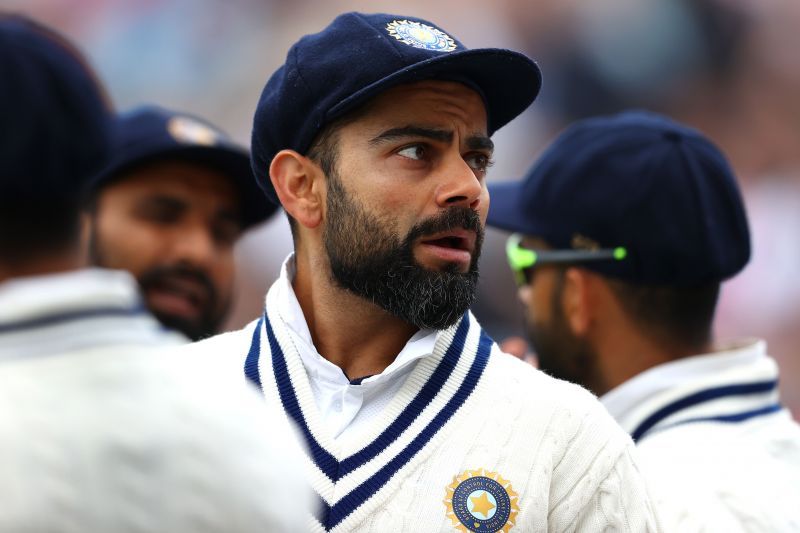
Joe Root does what India would've wanted from Virat Kohli
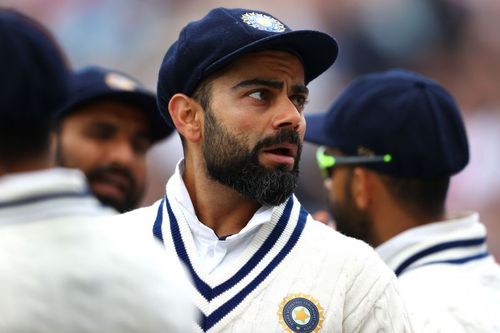
On 25th August, 2021, when Joe Root and Virat Kohli walked out to the center for the toss, the expressions of both captains spoke a thousand words.
Kohli, just days prior, had spurred his team to a watershed victory at Lord’s – a victory that had his imprint all over it, for the way it was achieved. Root, on the other hand, perhaps represented that sheepish guy in class who had done everything correctly until the final exam but had somehow forgotten the answers to the questions that seemed easiest.
As is the way with English cricket, Root was subjected to immense scrutiny. Some even suggested that England were probably better off with Root not acting as their Test skipper. But that was ludicrous on a couple of counts.
Firstly, Root was the only reason the Three Lions weren’t staring down a greater abyss post the debacle at Lord’s. Secondly, barring a few minutes of madness, he had done relatively well tactically.
For Kohli, who sat on the other side of the fence, everything that was spoken about him was an immortalisation of his leadership traits. The way he celebrated, the way he asked his players to “unleash hell”, the way he chirped around and amped up the temperature on English batters – everything received effusive praise.
So when Kohli won the toss (for the first time in 8 previous attempts, by the way), he looked overjoyed. It seemed that he was much happier with this particular conquest and for good reason. Even at that moment, everything was as good as Kohli and India had imagined it would be.
And then, it broke. It just broke. It broke so much that India were bundled out for 78, months after being at the wrong end of a similarly chastening display in Adelaide. It also broke so much that England’s openers overhauled India’s total without being dismissed. Sums it up then, eh?
Prima facie, plenty were quick to criticize Kohli’s assessment of the pitch and his decision to bat first. While those claims weren’t exactly unfounded, the capitulation was more a case of India’s batting unit (especially the middle order) simply not offering any resistance – something that has worryingly become a recurring pattern lately.
To place things into context, it has now been 50 international innings since Kohli scored an international century. Cheteshwar Pujara, meanwhile, has scored a grand total of one hundred in the past 32 months, whereas Ajinkya Rahane, despite his claims of being an “important” member of the side, hasn’t directly contributed to many victories.
Also Read: India's brittle middle order morphing into a huge concern
Virat Kohli has been in woeful form in England
Kohli, in particular, has seen a lot of his old shortcomings resurface – a pattern that keeps getting magnified every time he confronts a certain James Anderson. At Headingley too, Kohli’s dismissal and the manner of it seemed inevitable, which considering the Indian captain’s class and pedigree, is a damning indictment of the extraordinary rut he finds himself in.
Also Read: Stir up James Anderson's nest at your own peril
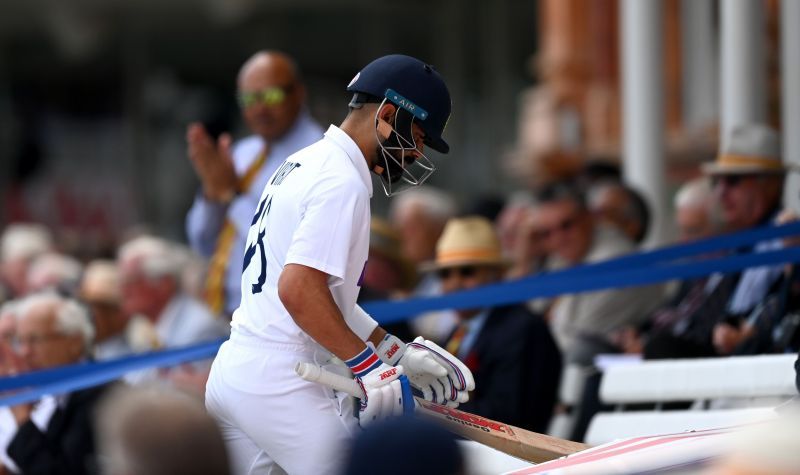
More alarmingly, the traits that have become synonymous with Kohli over the years – the aggression, the belief, the body language, the conviction and the decisiveness were nowhere to be seen. Instead, this version of Kohli was extremely tentative and one that showcased several signs of indecision and a cluttered mindset.
For much of his captaincy tenure, Kohli has argued that his batters need to impose themselves on matches. To an extent, he has wanted to practice what he has preached – something that becomes clearer when analyzing the number of times he has gotten out wafting at deliveries outside off stump.
However, there is also a fine line between being impatient & restless and brave & courageous. Unfortunately for Kohli, he has trodden on the latter lately, and with the runs not flowing as they once did, Kohli has just amplified his problems.
Even on the captaincy front, on Day 2, there was a lack of intensity on Kohli’s part. Though there were hardly any wickets or any sort of pressure to get into the batters and the camera’s faces, he looked an individual enormously burdened by his own troubles and of those around him. One would even be forgiven for saying that a Virat Kohli imposter had turned up at Leeds.
Other tactical decisions lacked their usual oomph. Instead, they were lackadaisical, uninspired and at times too impetuous. Bowling plans were altered almost every over and the fascination to bowl Ishant Sharma at the start of a new session severely restricted India’s potency.
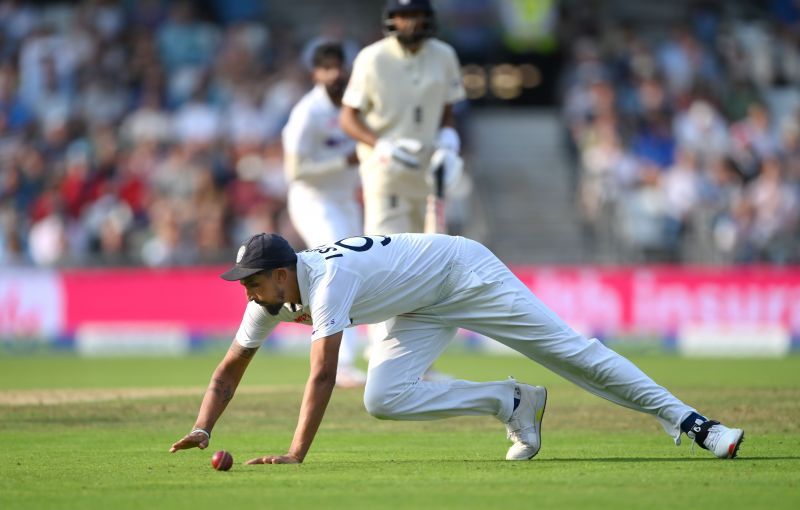
That the aforementioned, both batting and captaincy wise, came at a time when India were in the ascendancy in the series, only highlighted how much of an opportunity Kohli and the Men In Blue might’ve missed.
At the other end of that particular spectrum is perhaps Root, who came into the 3rd Test carrying the weight of a thousand English expectations, which incidentally also included the batters slated to turn out against India.
Yet he barely flinched and portrayed immense gumption, inventiveness and tactical nous to haul England to relative safety. Most tellingly, when the series seemed to be on the verge of slipping away, Root found a way to arrest the momentum of Kohli’s charges and of course, stamp his own authority, even suggesting that, in Kohli’s words, “this is his backyard”.
To put things into context, Root was simply imperious as he creamed his way to his third century in as many games this series. Not only did he pick and choose his moments to attack brilliantly, he did so with the kind of conviction that Kohli has historically been associated with but has not been able to replicate over the past couple of years.
As far as captaincy was concerned, Root silenced quite a few doubters with the clarity he showcased in his planning. From the outset, Root wanted to be aggressive – something that directly translated into the fields he set.
While having Anderson definitely helped in that regard, the English skipper could easily have retreated into his shell and waited for mistakes, especially after what happened at Lord’s. Instead, he wanted to induce them from an Indian side who, lest one forget, were riding on a gargantuan crest of confidence.
In simpler words, Root had, over the course of the opening couple of days at Leeds, done what India were hoping Kohli would accomplish. Root didn’t just establish a position of ascendancy for England, but he also signaled to the Indians that this rubber was far from finished.
In a utopian scenario, Kohli would’ve wanted to mirror exactly what Root did. Had he done so, England would’ve been pummeled into submission and might’ve been searching for solutions that simply didn’t exist.
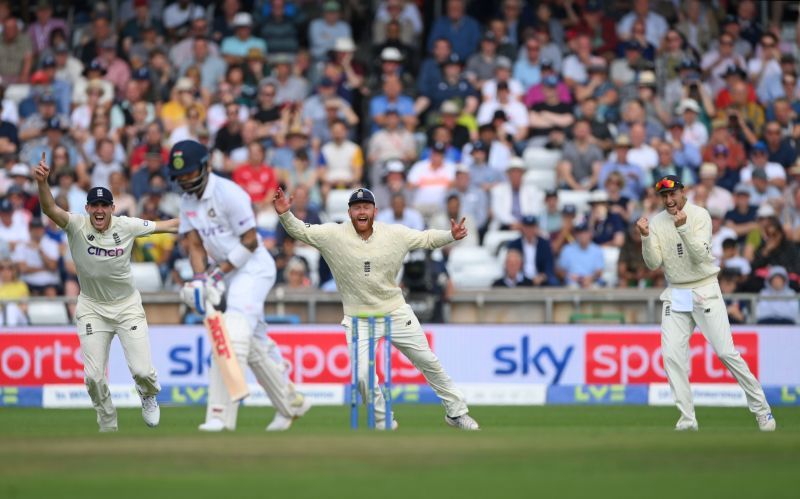
However, with Kohli woefully out of form and only a miracle capable of saving India at Headingley, the series might just be hanging in the balance again. Or, if one were to be cruder on India, they might’ve even handed England a slight advantage.
A lot of that particular conversation is conjecture. But what is becoming painfully clear and is anything but conjecture is that Root is winning this particular battle of the captains against Kohli. And unless something spectacular happens, Kohli might not be able to change that narrative.
To say that something is beyond Kohli is not the most prudent course of action, as history has taught countless times. But this is perhaps pushing the limits of the realms of possibility.
Quite a change in mood from what it was at the toss at Headingley, eh?